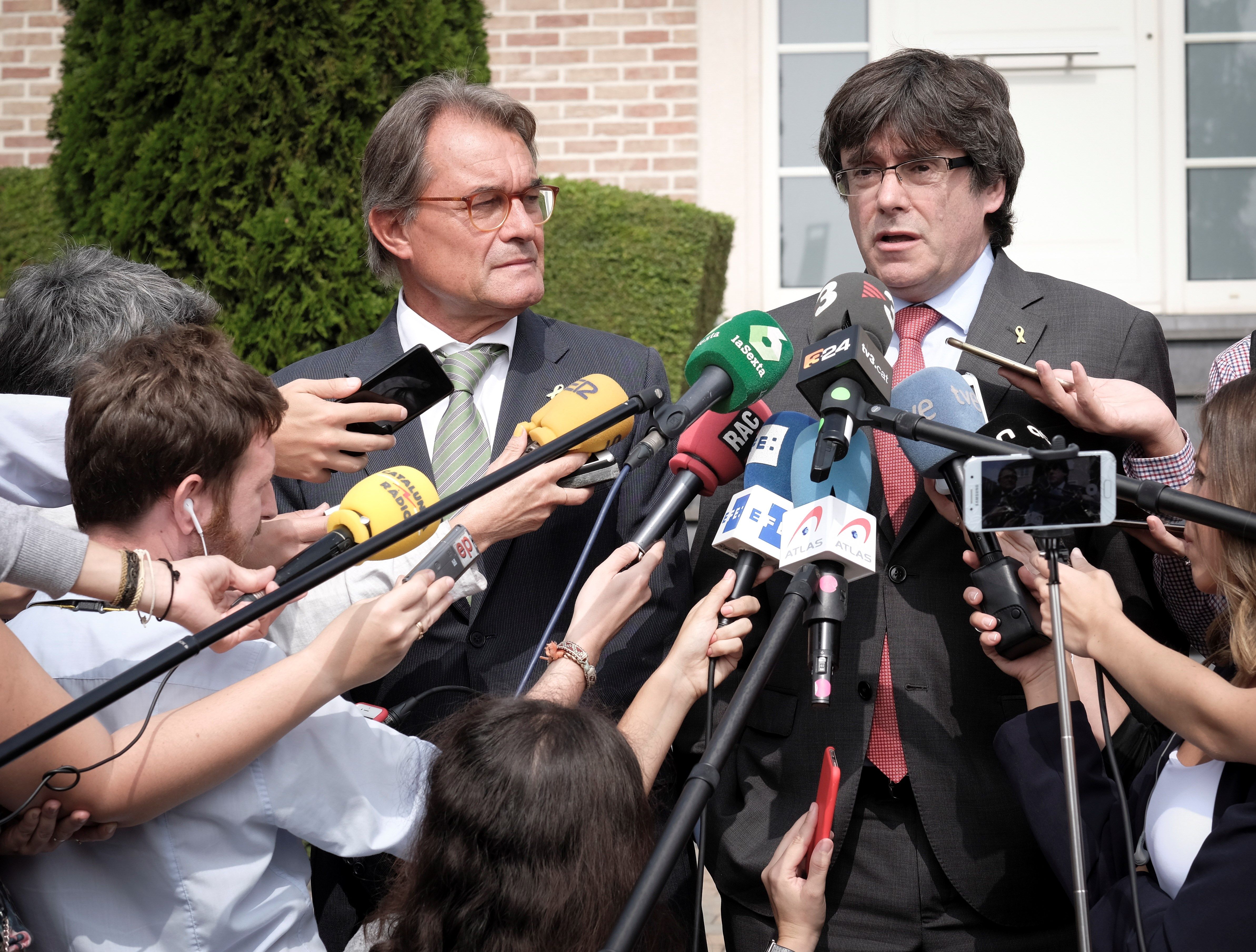The decision announced yesterday by Spain's Court of Accounts rejecting the ICF's guarantee to cover the huge bail sums it demands from some thirty former Catalan government members has launched a race against the clock to try to halt the seizure of the defendants' assets. The financial guarantees from 28 of the 34 former high-ranking officials charged had to cover the majority of the 5.4 million euro total that the Court claims as civil bail.
The intention is to lodge the bail sums this Friday to try to stop an asset seizure procedure that is already underway. In fact, the investigating delegate of the auditing body, Esperanza García, did not even offer a new deadline for presenting alternatives to the ICF guarantees that she rejected yesterday. Hence the need to act quickly.
When the Catalan economy ministry activated its Complementary Risk Fund to be able to respond to the bail demands last July, the political parties, the pro-independence Solidarity Fund and the defendants already looked into contingency proposals in case the Court ended up rejecting the guarantees. These means are being reactivated now to avoid seizures that would affect, among others, former Catalan presidents Artur Mas and Carles Puigdemont, ex-vice president Oriol Junqueras, and past ministers Raül Romeva, Francesc Homs and Andreu Mas Colell.
ERC contribution
A significant part of the bail is likely to come from the Catalan Republican Left (ERC) which before the summer had already planned to cover 2.2 million euros, through party assets as well as contributions from the membership.
Together for Catalonia (Junts), which states that it has no assets as a party, has also called on its members to raise funds, but has not yet set out what its contribution will be.
With the total amount to be contributed by the parties yet to be clarified, the pro-independence Solidarity Fund also add the money it currently has, always leaving a balance for other contingencies. In addition, on Monday the Fund will make a new public fund-raising appeal. In July, this body contributed one million euros that allowed the properties already seized by the Court of Accounts in another pro-independence case - that centred on the politicians convicted for their role in the consulta of 9th November, 2014 - to be released.
Assets to cover bail
Some of the properties already seized in the 2014 consulta case, but recently returned, will now be subject to a second attempted confiscation to cover the new bail demands of the Court of Accounts. In particular, this is the case of Artur Mas, who will once again present his house in Barcelona as bail, but he will not be the only one of the defendants who will have to surrender his property. They do so, moreover, with the uncertainty of whether these goods will finally be accepted, as the Court has decreed immediate seizure and may not accept the assets as mere guarantees.
A seizure entails intervention in current bank accounts, savings, and salaries, of which the defendants would only be able to receive the equivalent of 1.5 of the minimum legal wage. This applies to those who have salaries, because in the case of self-employed people, payments from all their customers will be paralyzed.
As for the other six defendants in the case who did not accept the ICF's guarantees, the Court of Accounts announced yesterday that it considered their bail to be covered, including the figure of more than 600,000 euros that was demanded by the former Comptroller General of the Catalan government, Mireia Vidal.
The Court of Accounts holds the 34 senior government officials responsible for having dedicated funds from the Generalitat's foreign policy budget to the promotion of the Catalan independence process, and although no court has found the officials guilty of these crimes, the auditing tribunal has the power to seize the assets on the basis of its own inquiries. Despite objections within the Court itself to the way it conducted the investigative process, the auditing body obliges the defendants to pay 5.4 million euros in civil bail in order to ensure that in the event that they are finally convicted they can cover the allegedly-misspent sum. Bail must be put up jointly and severally among all the defendants.
In the main image, Catalan presidents Artur Mas and Carles Puigdemont during a press conference in Waterloo / Efe

